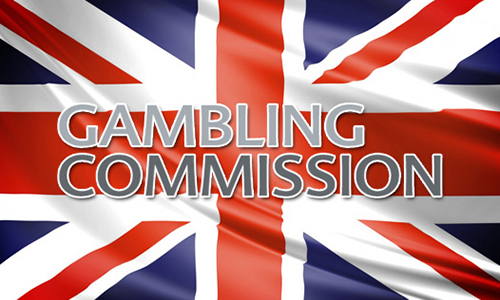UK Gambling Commission Releases ‘Review of Online Gambling’
A busy stretch for the United Kingdom Gambling Commission continued this week with the release of its previously promised “Review of Online Gambling.” The 63-page report was published in partial combination earlier this week with an announcement of the UKGC’s plans to continue tightening various aspects of its consumer-protection efforts.
 The Gambling Commission’s latest treatise offers four key policy recommendations, which British consumers can safely bet will be instituted in large part. Those actions involve improved age verification (designed to prevent underage visits to online gambling sites, even to “free play” offerings), improved KYC checks on customers’ financial status, misleading and unfair marketing and promotional practices, and ineffective customer interaction (particularly in terms of identifying behaviors that begin veering into problem gambling).
The Gambling Commission’s latest treatise offers four key policy recommendations, which British consumers can safely bet will be instituted in large part. Those actions involve improved age verification (designed to prevent underage visits to online gambling sites, even to “free play” offerings), improved KYC checks on customers’ financial status, misleading and unfair marketing and promotional practices, and ineffective customer interaction (particularly in terms of identifying behaviors that begin veering into problem gambling).
Two issues addressed by the UKGC in a separate press announcement drew quite a bit coverage — the move to ban underage access even to free-play offerings, and the disclosure that the agency might even consider banning the use of credit cards for depositing onto online sites.
That credit-card thing is overblown; it’s not a primary focus for the UKGC, but it is an area the agency will continue to examine. It’s best to look at as a carrot-and-stick aimed at the industry: Clean up some of these more pressing problems, or we’ll have to take more action.
Those more pressing problems number four, in the UKGC’s estimation:
Underage Online Play a UK Hot Button
The underage issue is a concern that many jurisdictions are beginning to address. In the UKGC’s view, allowing underage visitors to any form of a gambling site might serve as gateway conditioning that might increase the chances of problem-gambling behavior in later years. And that’s why the Commission is recommending what amounts to verifiable pre-registration for all such UK-facing sites.
It’s going to be a sweeping change for the industry. Such registration has normally only been required when real-money transactions are involved, but the UKGC’s plan will expand that to cover all offerings.
As it appears in the report’s executive summary, here’s what the UKGC offers:
i) Issue: age verification (AV)
The Young People and Gambling 2017 research study drew on data from an Ipsos Mori survey of 2,811 children aged 11 – 16, from schools in England and Wales. It found that 3% of 11 – 16-year-olds had gambled online. Whilst this is a relatively small amount, the availability of efficient and effective age verification tools means that, in our view, it is no longer necessary to allow operators 72 hours to complete age verification. In many cases operators do not use the 72-hour age verification period and instead only allow consumers to gamble after age verification has been completed.
We also have more general concerns about the availability of play-for-free games. These games are not gambling – they are free and there is no prize. But they may encourage young people to gamble. These concerns also apply to gambling-style games that are offered by non-gambling operators (and over which gambling legislation and the Commission have no remit). At present, we have no requirements regarding access to play-for-free games offered by licensed operators. We think operators should be providing greater protections in these areas.
Action: we will consult on amending the LCCP to require AV to be completed on all consumers before they can deposit money and gamble, and for play-for-free games to be available only after AV is completed.
Know Your Customer… or Else
There have been dozens of high-profile news stories emanating from the UK in recent years about gamblers who have stolen money from employers or embezzled from customers or obtained ill-gotten funds from somewhere. It’s an industry bane, and yes, problems from gambling can and do occur.
The UKGC has issued fines against operators running into the millions of pounds, in some of the largest cases, for those operators failing to conduct proper “Know Your Customer” background checks into where some of these gamblers have obtained their funds.
The Gambling Commission wants it to stop, and rest assured, the fines will continue. Here’s the agency’s top-line take on the issue:
ii) Issue: customer identification
Our experience has shown that many failings arise because operators do not know enough about their customers at an early enough stage of their relationship. These include cases where problem gamblers or criminals have gambled sums that were well in excess of what their profile would have suggested was affordable. In addition, we are concerned that operators may be treating their customers unfairly by requesting additional information only at the point where the customer has requested a withdrawal.
Action: we will consult on introducing a customer due diligence requirement so that operators will have more information about their customers at an earlier stage. This would require players to be verified before they were allowed to gamble. We will also consult on requirements that would mean operators had to set limits on players’ spending which could only be increased once they had further verified information about the player, for example via an affordability check.
Misleading Promotions Continue Drawing Ire
Though perhaps not as inflamed an issue as the UK’s problem-gambling debate, the issue of UK-facing operators serving up misleading and unfair advertising and promotional offers is another topic the Commission wants fixed. According to findings of the UK’s Competition and Markets Authority, the promotional offers of many online operators have been in long violation of the country’s consumer protection laws.
Several companies have recently entered into voluntary agreements with the CMA, which works with the UKGC on these issues and can refer complaints for formal legal action. In turn, both agencies have repeatedly threatened those UK-facing operators with ever-increasing penalties should they fail to correct their ways.
Again, via the UKGC report:
iii) Issue: unclear and/or unfair terms and conditions
The Commission and CMA launched a joint review of the online sector due to concerns about unfair terms and conditions. This review found widespread instances of unfair terms and practices in relation to promotional offers. The CMA is taking action in relation to several operators, and we will be conducting compliance activity to apply the same standards across the industry.
Action: We are already consulting on amendments to LCCP. We will also publish guidance for operators and ADRs on unfair terms, and provide more information on where consumers should go if they have been treated unfairly. Our view is that this is necessary in order to build on and embed the outcomes of our work with the CMA.
Work Harder to Identify Problem Gamblers
The KYC prompting has more than one aspect. As the UKGC points out, the online operators have a wealth of data at their fingers that allows them to identify all sorts of behaviors, whether by demographic group or individually.
It’s the UKGC’s position that operators just aren’t committing the energy or resources to identify problem and addictive gambling behavior at an early stage, before it becomes a life-consuming problem. These operators need to do more, sooner. As the UKGC states:
iv) Issue: ineffective customer interaction
Our work has indicated that although some operators are starting to make progress, there are still inadequacies in the online sector’s approach to customer interaction. Some operators are starting to use data more effectively to identify potential indicators of harm at the earliest possible stage and provide effective support and advice to consumers to reduce it. But this needs to become more widespread.
Action: We have recently published guidance to operators in order to raise standards in customer interaction across all operators. In 2018-19 we will also consult on amending the LCCP [Licence conditions and codes of practice] customer interaction requirement.
The headline-making credit-card threat and other secondary issues will still receive ongoing attention. But the above, these four points, are where the UKGC is focused. Expect the coming months to see an increased tightening in these areas as new regulations are formally approved and come into effect.


















COMMENTS